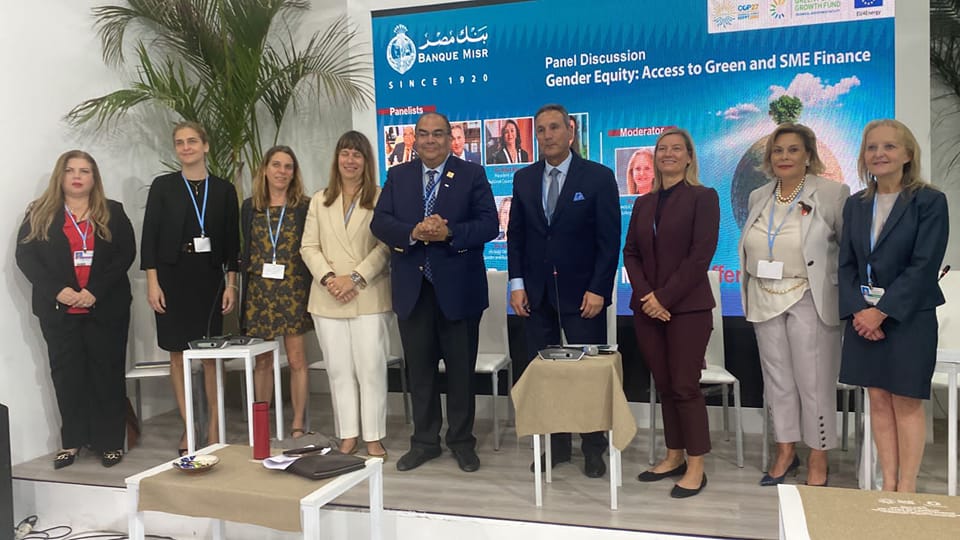
On the “Gender Day” at COP27,
Rawya Mansour: Zero waste eco-villages initiative and organic farming are essential for food security, women empowerment in Africa, and sustainable development.
Mrs. Rawya Mansour, Entrepreneur and CEO of Ramsco Egypt and Oasis Technologies Monaco, winner of the “African Leader of the Year 2019” title, expressed her thanks and appreciation to President Abdel Fattah El-Sisi for his keenness to support and empower Egyptian women through many national initiatives and projects.
She also thanked Dr. Maya Morsi, President of the National Council for Women, for her support to the private sector, notably the organic farming project and the entrepreneurs’ initiative for zero waste eco-villages, which was implemented by Rawya Mansour within the framework of the private sector’s efforts concerning food security, women empowerment, and environmental preservation.
Mrs. Rawya Mansour stressed her keenness, in the Ramsco Project for sustainable development and organic farming, to provide healthy agricultural products and crops that are free of pesticides and safe for human health by employing technology and recycling agricultural waste using “Bio char” green charcoal made through pyrolysis, which is one of the unique ways to eliminate gas emissions, mitigate and adapt to climate change, improve soil characteristics and rationalize water consumption by 60%, leading to a circular economy, where all agricultural waste is recycled achieving zero waste.
Rawya added: “I obtained two patents; the first for a bio char production machine, which turns rice straw and other types of waste into this valuable organic substance instead of burning this waste. The second patent was for a soil enhancer that can be an ideal replacement for chemical fertilizers and reduce the consumption of water while increasing productivity at the same time. The project received a European quality certification and license to export its organic crops. the project has also obtained European certificates acknowledging the quality of organic products and crops, and their validity for export.”
“Oasis technologies for regenerative agriculture depends on the green charcoal machines to locally produce bio char as one of the only ways to mitigate and adapt to climate change and enhance the soil fertility. This green or bio char saves up to 30% of irrigation water, as compared to drip irrigation, sequestrates Carbon Dioxide from that air, and substitutes chemical fertilizers for desert arid areas, especially after the problem of Ukraine war and its effects on fertilizers sector,” she said.
Mrs. Rawya Mansour also called for advancing the empowerment of women in Africa, as one of the United Nations SDG’s.
“Using our technologies for capacity building enhances gender equality and the empowering of marginalized rural women,” she said.
“The majority of agriculture workers around the world are women producing 40 to 80% of entire agricultural crops. Women empowerment could be achieved through 4 main axes: providing the necessary funding, land appropriation for women, upskilling and training girls and women, and finally providing supporting activities to their projects, such as marketing and packaging, as the project aims to transfer technology and provide training and skills for women in marginalized villages in Africa to mitigate and adapt to climate change and achieve their economic independence.”
“The food security is an essential pillar for development and stability. The state’s participation in supporting the private sector to implement agricultural projects is one of the most important foundations for the success of the reform and sustainable development plan,” Mrs. Mansour concluded
